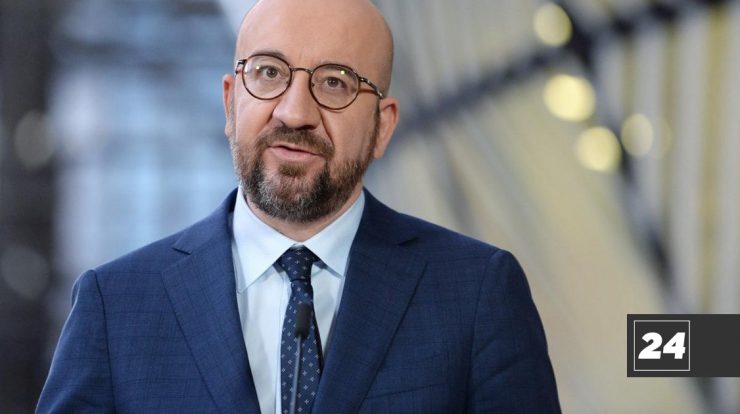
The President of the European Council, Charles Michel, expressed satisfaction this Sunday that the G7 countries followed the “leadership” of the European Union and accepted the acceleration of the production and distribution of vaccines against Covid-19 around the world.
The priority was to ensure that we could meet the demand for vaccines and this is where the European Union took the lead. Partners have joined us now to accelerate vaccine production and distribution worldwide.”, announced on the last day of the summit held at Carbis Bay, in the southwest of England.
The Group of Seven (Germany, Canada, the United States, France, Italy, Japan and the United Kingdom) hopes to reach the goal of donating one billion doses by next year, with the United States promising to provide 500 million doses and the United Kingdom another 100 million.
The European Union considers itself the “pharmacy of the world” given that it has exported nearly half of the 700 million doses produced in its space since December to more than 90 countries, unlike other major producers such as the United States and the United Kingdom.
In a video posted on Twitter, Michel also praised the union between countries with “liberal democracies and open societies” in the face of pressure from authoritarian regimes, in a veiled reference to China and Russia, which Brussels regularly criticizes.
This union provides the ability to “respond under pressure or attack, but also to spread our values of freedom, rule of law and respect for human rights,” he said.
Finally, Michel reiterated the EU’s commitment to Africa at the G7 summit, where Michel said it was possible to unify the positions of European countries and “convinced our partners to mobilize more money” for the continent.
Leaders of industrialized countries plan to announce new climate finance schemes to help the poorest countries reduce carbon emissions and adapt to the impact of climate change.
The “Building Back Better for the World” plan aims to secure financing for essential infrastructure, from railways in Africa to wind farms in Asia.
In addition to the European Union, regular attendance at G7 summits, this time India, South Korea, Australia and South Africa have been invited to bolster the group’s support for other democracies.
The meeting, the first in person in two years due to the Covid-19 pandemic, was organized by the United Kingdom, which took over the rotating presidency this year, and which will be in charge of Germany in 2022.
Kovacs considers a “historic” agreement to donate 870 million vaccines
Covax, a platform for distributing covid-19 vaccines to less developed countries, today touted a G7 agreement to donate 870 million “historic” doses, in the hope that they will be made available quickly.
In the face of an urgent need for supply, Covax is focused on ensuring that as many doses as possible are immediately shared.”The initiative brings together the World Health Organization (WHO), the Alliance for Vaccines (GAVI) and the Coalition for Epidemic Preparedness and Innovation (CEPI).
According to Covax, the commitment signed at the G7 Summit states that at least half of the 870 million doses will be delivered by the end of this year.
G7 countries have pledged to directly share at least 870 million doses of vaccines, aiming to deliver half of them by the end of 2021, and reaffirmed their support for Covax as the main route to providing vaccines to the poorest countries.The platform advanced.
Covax has also ensured that it intends to work with G7 and other countries providing vaccines for this delivery mechanism to reduce short-term supply difficulties affecting the global response to the pandemic.
“This is an important moment of global solidarity and a milestone in efforts to ensure that the people most at risk are protected in every country.”Seth Berkeley, CEO of the Global Alliance for Vaccines and Immunization, said in the statement. “Promised doses quickly turn into given doses”.
For WHO Director-General Tedros Ghebreyesus, the agreement reached at the G7 summit came at a time when “many countries are facing an increase in cases, but without vaccines” against Covid-19.
“We are in the race of our lives, but it is not a fair race, and most countries have barely left the starting line,” the WHO official warned.
